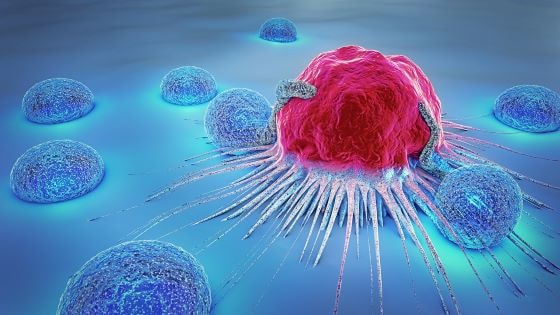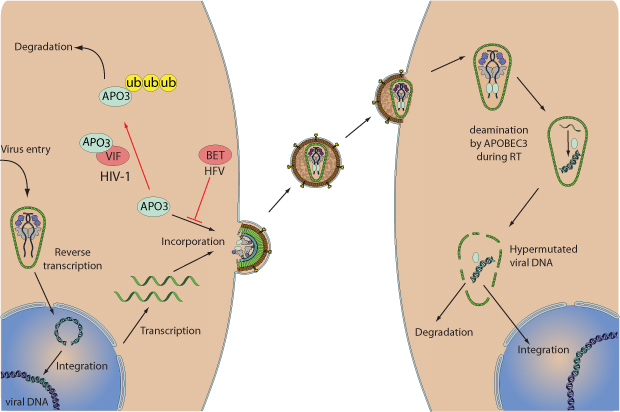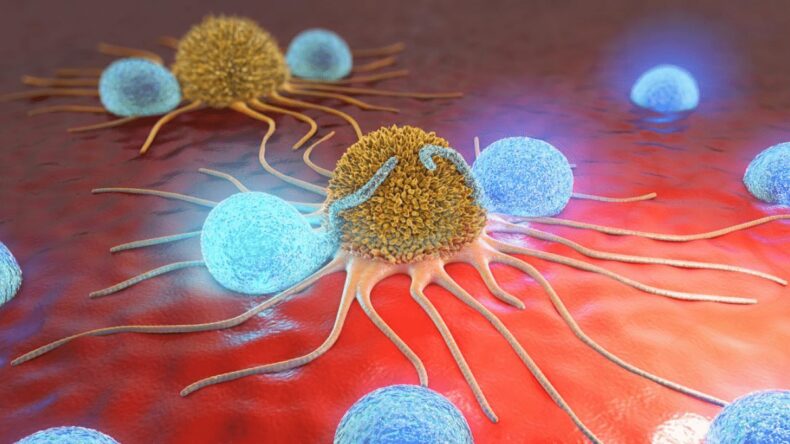An Enzyme that defends human cells from viruses can encourage the emergence of more malignant cancers by generating a variety of alterations in cancer cells.
In cancer genomes, mutagenic mechanisms leave distinctive marks. Using a preclinical model to study the enzyme’s role in promoting bladder cancer, the researchers found that it significantly boosted the frequency of mutations in tumor cells, increasing the genetic diversity of bladder tumors and hastening death.
These enzymes are dangerous by nature, thus safeguards must be put in place to prevent them from damaging cellular DNA. But starting around a decade ago, researchers employing fresh DNA-sequencing methods started to discover significant APOBEC3-type alterations in cellular DNA in the context of cancer. The enzyme is believed to contribute to the development of cancer by escalating the number of mutations in tumor cells.

According to senior author Dr. Bishoy M. Faltas of Weill Cornell Medicine, “Our findings imply that APOBEC3G is a substantial contribution to bladder cancer progression and ought to be considered as a target for future therapy methods.”
Dr. Faltas, who is the director of bladder cancer research at the Englander Institute for Precision Medicine and a member of the Sandra and Edward Meyer Cancer Center, discovered that a significant number of the mutations in these tumors were APOBEC3-related in a 2016 study of human bladder tumor samples. These mutations appeared to play a role in helping tumors evade the effects of chemotherapy.
APOBEC3, the cancer fueling Enzyme
According to the study, the APOBEC3 family of enzymes may chemically change a cytosine nucleotide to alter RNA or DNA. These enzymes, particularly APOBEC3G, often function to thwart the reproduction of retroviruses like HIV by altering the cytosines(the letter “C”) in the viral genome.

These results raise the potential that tumors in general use APOBEC3s to modify their genomes. The researchers switched the gene for the only APOBEC3-type enzyme in mice with the gene for human APOBEC3G since APOBEC3G is a human enzyme that is not present in mice.
Research Findings
The scientists found strong evidence that APOBEC3G generated a larger mutational load and genomic variety in the tumors by identifying and mapping the particular mutational signature of the enzyme in the cancer genomes, possibly explaining the increased malignancy and mortality in the APOBEC3G mice.
Weisi Liu, a postdoctoral research associate, and the study’s principal author says that in these cancers, “We identified a distinctive mutational signature formed by APOBEC3G that is distinct from signatures induced by other members of the APOBEC3 family.”

According to earlier research, tumors use APOBEC3 enzymes to increase the number of mutations. These alterations may aid in avoiding immune system and cancer medication detection in addition to fostering the growth of the malignancy.
The team found plenty of evidence that the enzyme had increased the mutational burden and genomic diversity in the tumors, which likely accounted for the higher malignancy and mortality in the APOBEC3G mice. They identified the specific mutational signature of APOBEC3G and mapped it in the tumor genomes. In contrast to signatures created by other APOBEC3 family members, “we observed a specific mutational signature caused by APOBEC3G in these malignancies,” stated Dr. Liu.
Finally, the researchers searched The Cancer Genome Atlas, a popular human tumor DNA database, for the APOBEC3G mutational signature and found that these mutations appear to be widespread in bladder tumors and are linked with worse outcomes, the report stated. These results will help guide future efforts to stop or direct the development of tumors by drugging APOBEC3 enzymes, according to Dr. Faltas.













